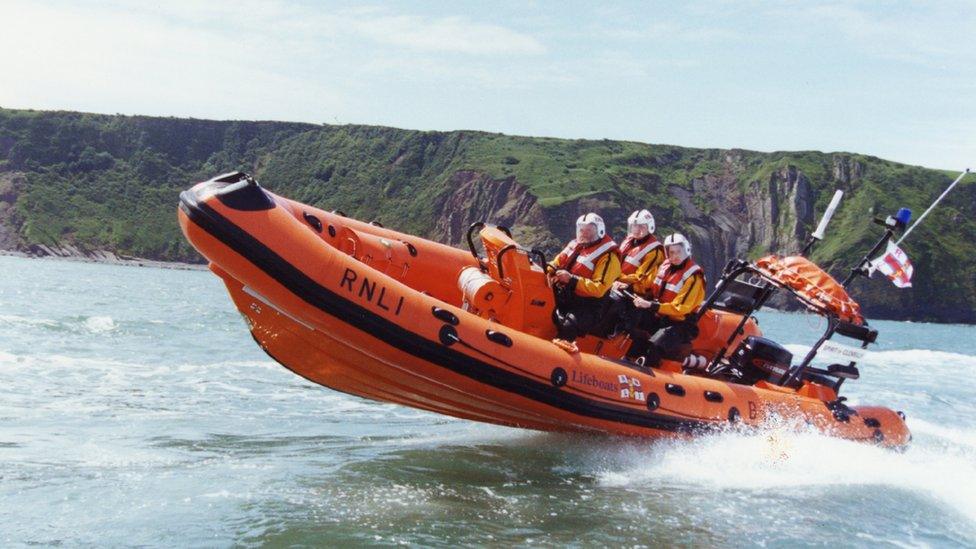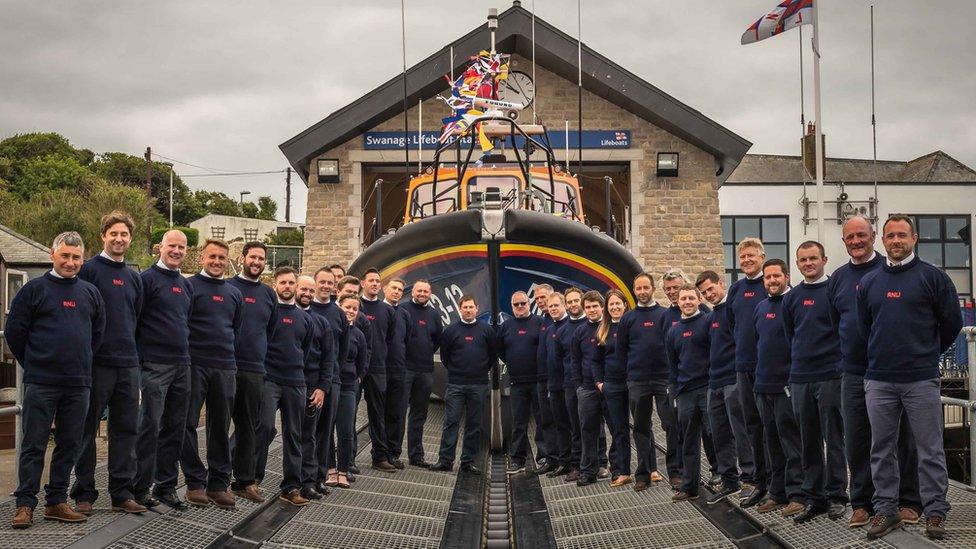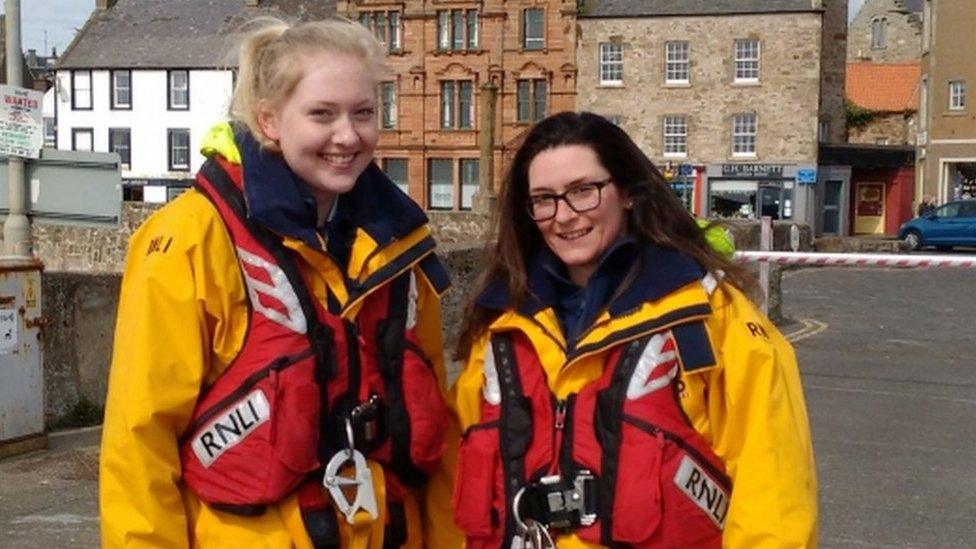Floating is better than swimming for increasing sea survival, says RNLI
- Published
The RNLI demonstrates how to help sea survival chances by floating
Floating after falling into the sea rather than trying to swim, is more likely to ensure your survival, a new RNLI campaign says.
The instinct to swim, panic and thrash about increases the chances of water getting in the lungs and puts a strain on the heart.
The RNLI's Ross Macleod said practising floating was a "survival skill".
Latest figures from the charity show 162 people lost their lives on the UK coast in 2016.
The RNLI's advice is to float for about 60-to-90 seconds if you fall in water - the time it takes for the effects of the cold shock to pass and to regain control of breathing.
RNLI release coastal fatality figures
Sudden immersion in water any temperature below 15C puts people at severe risk of cold water shock.
'Fight your instincts'
The recommended floating position is to lean back in the water and keep your airway clear while keeping calm to maintain breathing levels.
Only 3% of respondents in the Dorset-based charity's research said they would try and float as the first action they would take if they fell in to cold water unexpectedly, while 40% said their immediate reaction would be to swim.

Latest figures from the RNLI show 162 people lost their lives on the UK coast in 2016.
RNLI coastal safety manager Ross Macleod said it was important to "fight your instincts".
"We're asking the public to remember this lifesaving advice, share with others and practice the survival skill of floating - it could be the difference between life and death.'
Of the 162 people who lost their lives on UK coasts in 2016. Three quarters were men and 44% didn't intend to enter the water.
- Published30 April 2017

- Published20 April 2017

- Published2 April 2017
